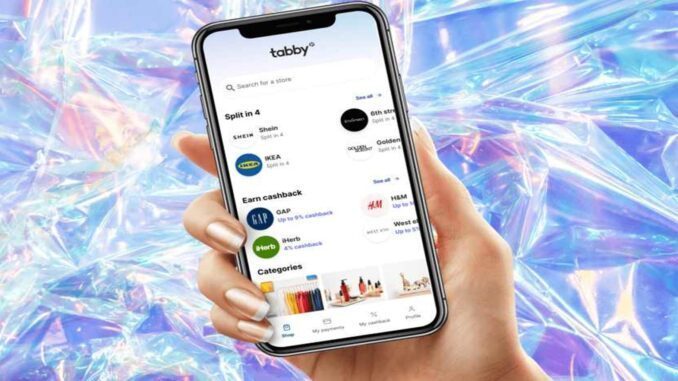
The Emirati BNPL platform “Tabby” will suspend its operations in Egypt, citing ‘recent macroeconomic developments’, reported The National.
The UAE-based Buy Now, Pay Later (BNPL) platform “Tabby” will prioritise core markets after suspending its operations in Egypt, just six months after entering the market, according to The National, a UAE daily newspaper.
“In a short period of time, we have seen very strong adoption of our products and services with some great merchant partners,” Tabby chief executive and co-founder Hosam Arab, according to the Emirati daily.
“However, as with any business, we must prioritise projects that align with our long-term goals in core markets, and as a result, we have decided to pause our commercial operations in the Egyptian market.”
Mubadala-backed Tabby, founded in 2019, offers consumers interest-free, flexible payment options for online and in-store shopping. It operates in the UAE, Saudi Arabia, Kuwait and Bahrain and expanded to Egypt in September.
In a leaked e-mail to merchants explaining the “difficult decision”, the Tabby team said, “recent macroeconomic developments have made our operating model challenging while maintaining our principles of interest-free payments”.
As of March 23, customers will no longer be able to make new purchases using Tabby in Egypt.
Sellers were told to remove all Tabby branding from their shops, websites and apps by that date.
No date or timeline was given for a possible resumption of Tabby’s Egypt operation.
“Our confidence in Egypt’s potential in the region remains unchanged and we hope to one day revisit this decision,” the e-mail said.
There will be no lay-offs and Tabby will continue to invest in growing its team on the ground, who will refocus on supporting its core markets, Mr Arab said.
Egypt is suffering from the economic fallout from the Russia-Ukraine war, including a higher import bill and record inflation. It has devalued its currency three times, with the pound now at 30 to the US dollar, compared with 16 a year ago.
The country’s annual inflation rose to more than 25 per cent in January, the highest in more than five years.
High inflation has driven the popularity of BNPL globally, with consumers taking advantage of short-term financing to spread their payments and better manage their money.
Global BNPL transaction values are projected to grow to $576 billion by 2026, up from $120 billion in 2021, according to data analytics company GlobalData.
The effects of global macroeconomic challenges on Egyptian start-ups have been mixed, with some seeing an opportunity and others experiencing lay-offs and a funding crunch.
For example, Nasdaq-listed Swvl let go a third of its workforce last May and its market capitalisation has plummeted from $1.5 billion to about $11 million.
Tabby is one of the most well-funded start-ups in the Mena region, raising $58 million in its latest series C round in January at a valuation of $660 million.
Investors included PayPal Ventures, Sequoia Capital India, Saudi Arabia’s STV, Mubadala Investment Capital, Arbor Ventures and Endeavor Catalyst.
It secured $150 million in debt financing last August from US-based Atalaya Capital Management and Partners For Growth.
The company also raised $54 million in its series B last March and $23 million in its series A in December 2020.
Egyptian start-ups raised $517 million last year, compared with $501 million in 2021, according to data platform Magnitt. Egypt led the Mena region with 160 deals, a 3 per cent decline from 2021.
“We remain optimistic about the future of the Egyptian market and will continue to assess opportunities to re-engage in the future,” Mr Arab said, according to the Emirati daily.



